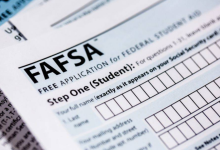Do Work Study Income Jobs Get Taxed? (Frequently Asked Questions)

Introduction To Work Study Income Jobs
Work-study jobs offer students a unique opportunity to earn income while pursuing their education. A common concern for students considering these positions is whether the income earned is subject to taxation. In this blog post, we aim to provide clarity on the taxation aspects of work-study jobs.
What is a Work-Study Job?
A work-study position is a form of employment often offered to students within the structure of their educational institution. These jobs provide students with practical experience while earning money and are frequently subsidized by federal or state financial aid programs.
Is Income from Work-Study Jobs Taxable?
Yes, income earned from work-study jobs is generally taxable. It’s crucial for students to recognize that the wages they earn through work-study positions are subject to federal and, in some cases, state income taxes.
How is Work-Study Income Taxed?
Work-study earnings are typically considered taxable income and should be reported on the student’s annual tax return. Depending on the student’s total income and filing status, they may be required to pay federal income taxes on their work-study wages.
Do Work-Study Jobs Affect Financial Aid Eligibility?
No, work-study earnings do not directly impact a student’s eligibility for financial aid. However, accurate reporting of work-study income on the Free Application for Federal Student Aid (FAFSA) form is important. This reported income helps determine the student’s financial need, which can affect the amount of aid they are eligible to receive.
Are There Tax Benefits or Deductions for Work-Study Income?
Students may be eligible for certain tax benefits or deductions, like the American Opportunity Credit or the Lifetime Learning Credit, which can reduce their overall tax liability. Consulting with a tax professional or using tax preparation software is advisable to explore these potential benefits.
What Tax Forms are Required for Reporting Work-Study Income?
Students who earn income from work-study jobs should receive a Form W-2 from their employer. This form outlines the total income earned and the taxes withheld throughout the year. Students should ensure they receive this form and use it when filing their tax returns.
How to Determine the Correct Amount of Taxes to Withhold?
To ensure accurate tax withholding, use the IRS’s W-4 form. This form helps determine the appropriate number of allowances to claim, affecting the amount of taxes withheld from paychecks.
What Happens if Work-Study Income Isn’t Reported?
Failure to report work-study income on tax returns can result in penalties, fines, or legal consequences. Accurately reporting all sources of income is crucial to avoid potential issues with the IRS.
Conclusion
Work-study jobs offer students valuable opportunities to earn income and gain practical experience. It’s essential for students to understand that wages earned from these positions are generally subject to taxation. By accurately reporting work-study income and exploring potential tax benefits, students can navigate the tax implications associated with work-study jobs.
Consulting with a tax professional or using reliable tax preparation resources ensures compliance with tax regulations and maximizes available tax benefits.
This blog post aims to address common questions and provide accurate information, helping students understand the taxation aspects of work-study jobs and be well-informed about their financial responsibilities and opportunities.












